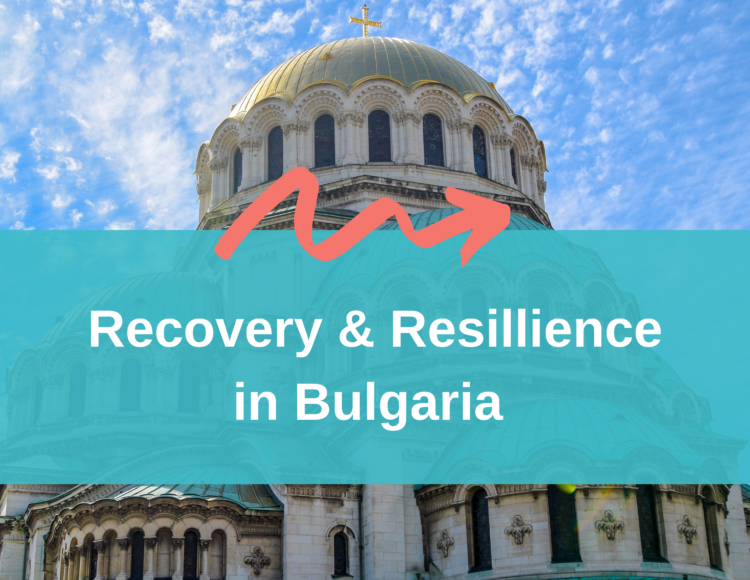In November 2021, Housing Europe launched its exclusive report ‘Impact of the Recovery Plans on the Social and Affordable Housing Sector’ that dug deeper into the content of this instrument designed to boost the economy after the hit of the health pandemic. As a follow-up to our comparative analysis, our Policy Officer, Edit Lakatos has also looked at the level of importance individual Member States have given to resilient and affordable housing.
As a follow up to our Comparative analysis of last November on the Impact of the Recovery Plans on the social and affordable housing sector, country profiles are published each month. Now it is the turn of Bulgaria.
Let’s see the highlights of the Plan below:
Bulgaria
The country will benefit a total of €13.52 billion under the RRF and national co-financing will be in total 2 123 705 BGN public sources and 4 719 245 BGN private sources.
The Bulgarian Plan is built around 4 pillars: Innovation, Climate Transition and Nature Protection, Connectivity and Social Fairness. For our sector, the green and fair pillars can be underlined.
The Green Bulgaria Pillar is focusing on the sustainable management of natural resources (41.9% of the resources under the Plan) and Fair Bulgaria put an emphasis on the disadvantaged groups to achieve a more inclusive and sustainable growth and shared prosperity for all.
The Low-carbon economy 2.B.-under Green Bulgaria- lists the relevant planned investments:
- Establishment of a National Decarbonisation Fund;
- Developing a definition of “energy poverty” for households in the Energy Efficiency Act for the purposes of financing energy efficiency projects;
- Mechanism to finance energy efficiency and RES projects together with electricity bills;
- One-stop-shop;
- Support producers of energy from RES. Develop, facilitate and accelerate international trade in guarantees of origin;
- Preparing and adopting a National Roadmap to improve the conditions for unleashing the potential of hydrogen technologies and mechanisms for production and supply of hydrogen;
The Low carbon economy component will benefit from 5 109 649 BGN from the Recovery and Resilience Facility and BGN 400,332 will be co-financed by the state and BGN 2 043 057 will be privately financed.
Regarding energy efficiency in buildings, Bulgaria plans to allocate 1496,4 million BGN to finance energy efficiency and renewable energy projects in residential buildings, both for multi-family and single-family buildings. In total, the program is expected to benefit up to 10 680 households. It is a measure exclusively devoted to renewables and it will cover 100% of expenses only for those households most severely affected by energy poverty, while it will contribute up to 50% for installation expenses in all other cases.
Setting up an information system and developing the definition of energy poverty
The Plan describes to build a special information system to enable the development of a database for monitoring and reporting of the residential building renovation process. In 2022, the country will develop a definition of “energy poverty” for households in the Energy Efficiency Act for the purposes of financing energy efficiency projects.
A Programme to finance single energy efficiency measures in one-dwelling buildings and multi-dwelling buildings that are not connected to heat and gas transmission networks
The programme aims to improve energy efficiency of final consumption in the household sector by financing the purchase of energy-efficient thermo pumps, solar systems for household heat supply and photovoltaic systems.
Mechanism to finance energy efficiency and RES projects together with electricity bills
The reform aims to expand the opportunities for implementation of measures and projects for energy efficiency improvement and construction of renewable energy sources in conditions of limited financial resources.
One-stop-shop
The reform aims to lower the administrative burden (for households as well as for companies), associated with the renovation process in taking measures for energy efficiency improvement, and to support the citizens with information, technical assistance on regulatory, technical and financial matters related to their energy efficiency projects.
Find the detailed country analysis for Bulgaria in our download section.
Read the full report.
Contact Edit Lakatos if you would like to know more.
